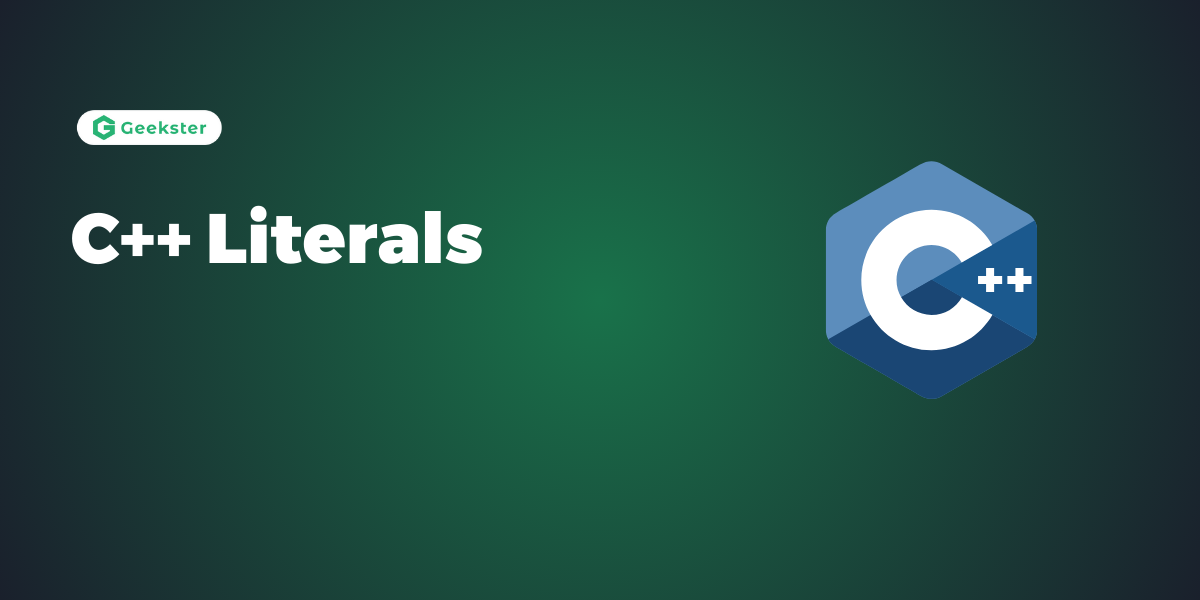Introduction
In the interesting global of programming, every language has its own building blocks that form the idea of the code. In C++, those constructing blocks are known as literals, and that they play an vital position in representing consistent values on your applications. Whether you work with numbers, letters, or maybe words, C++ itself is the key to unlocking the strength of information representation. Let’s embark on an interesting journey to find out one-of-a-kind varieties of literals and how they permit you to create excellent packages!
What are Literals in C++?
It’s really like the raw material that programmers use to build their code. They represent fixed values that never change throughout the execution of the program. Think of them as building blocks for your masterpiece. Literals in C++ come in a variety of forms, each designed to represent a specific type of data.
Types of Literals in C++
- Integer Literals: Integer literals are the constants that represent whole numbers, both positive and negative. They can be expressed in different number systems, such as decimal (e.g., 42), octal (e.g., 052), hexadecimal (e.g., 0x2A), or even binary (e.g., 0b101010). These literals are perfect for counting, indexing, or any task that requires whole numbers.
- Floating-Point Literals: Floating-point literals are the constants that represent numbers with a decimal point or fractional part. They can be used to represent values like 3.14 (pi), 2.7 (Euler’s constant), or even 9.8 (Earth’s gravitational acceleration). These literals are essential for scientific calculations, financial applications, and any scenario that requires precise decimal values.
- Character Literals: Character literals are the constants that represent individual characters or special escape sequences. They are enclosed in single quotes, such as ‘A’, ‘B’, or even ‘\n’ (for a newline character). These literals are invaluable when working with text, strings, or any application that deals with individual characters.
- String Literals: String literals are the constants that represent sequences of characters or words. They are enclosed in double quotes, such as “Hello, World!” or “This is a string literal.” These literals are essential for text-based applications, user interfaces, and any scenario where you need to work with words or phrases.
- Boolean Literals: Boolean literals are the constants that represent logical values of true or false. They are fundamental to programming logic, decision-making, and control flow. With Boolean literals, you can create conditions, evaluate expressions, and make your programs behave intelligently based on specific conditions.
Using Literals in C++
There are actually building blocks of your C++ applications, and that can be used in different ways. You can also add them to variables, use them in calculations, or print them in the console. For example, you can create a variable specified as years and assign it an integer literal of 18, or you can enter “Hello, World!” Go to the console.
Conclusion
Mastering literals in C++ is like having a effective toolbox at your disposal. With these fundamental constructing blocks, you may create packages that constitute and manipulate information in infinite approaches. Whether you’re running with numbers, characters, strings, or logical values, information and using literals efficaciously will raise your C++ programming abilities to new heights. So, include the energy of literals, and permit your creativity shine as you craft exquisite applications that deliver your thoughts to existence!
Frequently Asked Questions
Yes, you could use floating-point literals to represent complete numbers, however it’s no longer the most efficient way. For example, 3.0 represents the whole number 3. However, it’s better to use integer literals (3) when dealing with whole numbers to save memory and processing power.
To use string literals in C++, you need to include the <string> library and declare a string variable. Here’s an example:
include
int main() {
std::string myString = “Hello, World!”;
// Use myString in your program
}
Boolean literals, such as “true” and “false,” serve to represent true or false values in conditional statements and logical operations, not in arithmetic operations.

